Trump claims he's 'all for masks,' even for himself, despite never wearing one in public
In a Fox interview, he repeated that he hoped the virus would "disappear."
President Donald Trump's resistance to wearing a mask is well-known and he's never done so in front of news cameras.
But as pressure mounts from his fellow Republicans and Fox television hosts for him to "set an example" as the pandemic worsens, Trump on Wednesday claimed "I'm all for masks" and "would have no problem" wearing one in public.
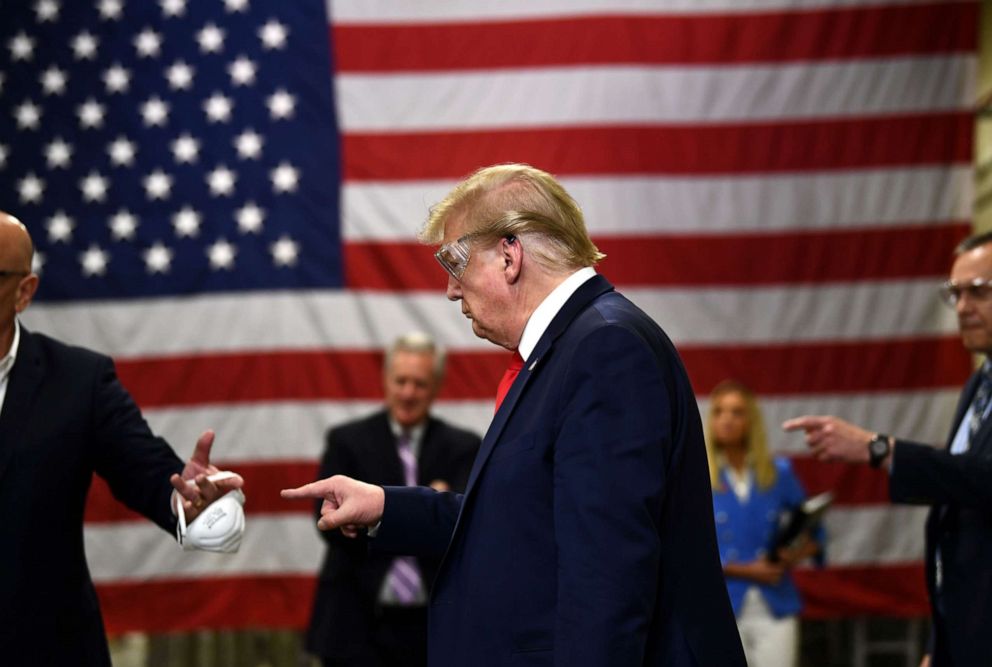
"People have seen me wearing one. If I'm in a group of people where we're not, you know, 10 feet away and, but usually I'm not in that position and everyone is tested. Because I'm the president, they get tested before they see me. But if I were in a tight situation with people -- I would absolutely," Trump said in an interview with Fox Business Network.
Trump appeared to refer to an unverified photo of him wearing one out of the view of news cameras during part of his tour of a Ford plant in Detroit back in May, even though he said that same day he intentionally removed his mask before walking before news cameras and telling reporters he "didn't want to give the press the pleasure of seeing it."
"It was a dark black mask and I thought it looked okay. Looked like the Lone Ranger," he joked in the Wednesday Fox interview.
As the pressure has grown and more governors and state officials are making masks mandatory, the White House has argued Trump not wearing one was "his choice" -- and a matter of "personal choice of any individual" that the Centers for Disease Control has said is recommended but not required.
At the same time, the White House said the president believed Americans should follow the guidance of local authorities.
It was the same language Vice President Mike Pence used again Tuesday while also claiming surprisingly, "Well, the president's worn a mask in public, as have I. And you've heard a strong encouragement, about mask wearing."
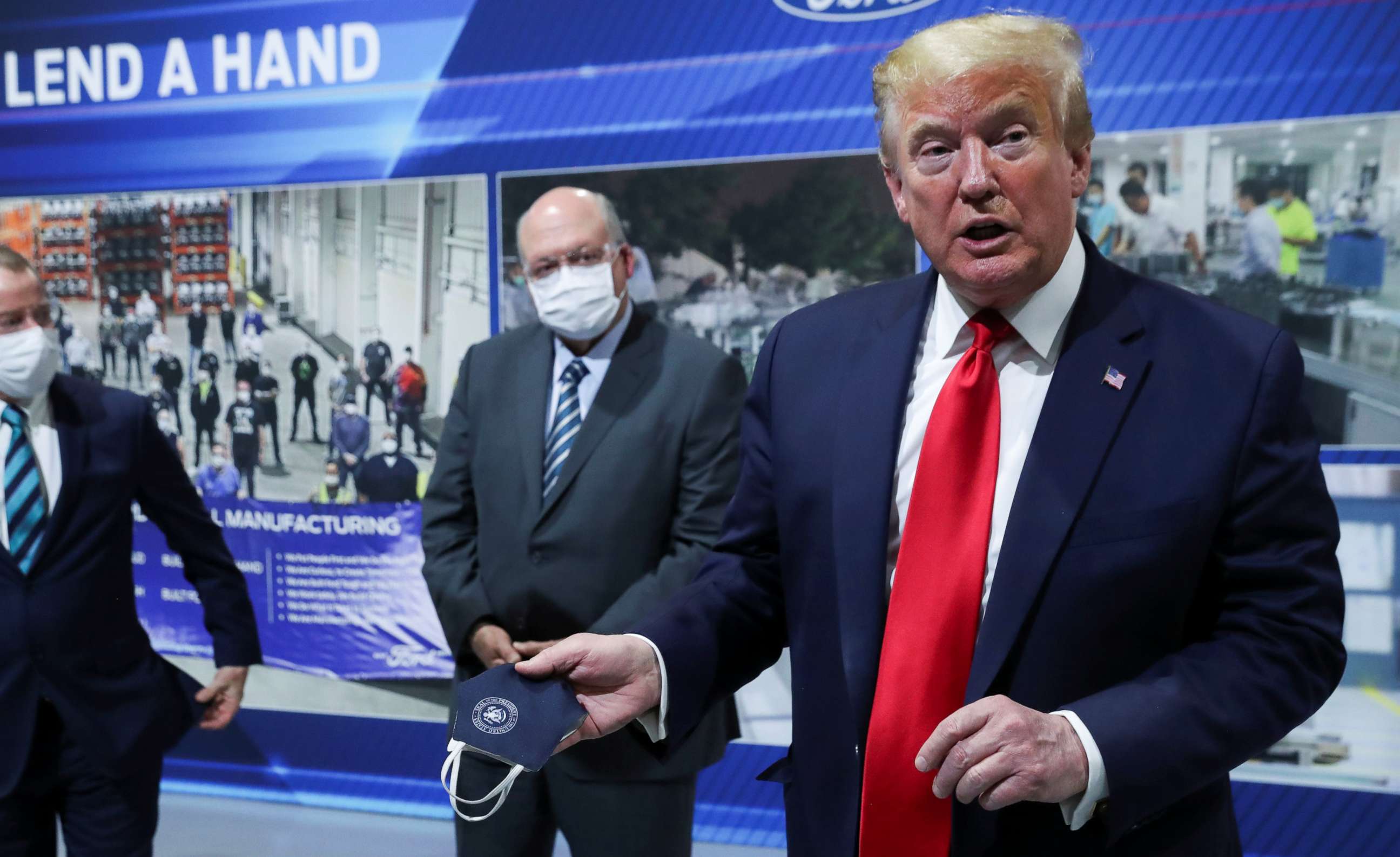
Back in May, when Trump asked a reporter to take his mask off when asking a question -- and the reporter said he would just speak louder -- Trump accused him of wanting "to be politically correct."
And four times in a June interview with the Wall Street Journal, the president repeatedly discussed how he believed masks were a "double-edged sword" and mocked former Vice President Joe Biden for wearing one.
In the Fox interview, the president repeated that he thinks the coronavirus will "just disappear" eventually, even though public health officials have made clear it will not simply go away.
"I think we are going to be very good with the coronavirus. I think that at some point that's going to sort of just disappear, I hope," Trump said.
Pence, who continues to insist the country is "safely" reopening even as the president has mostly stayed out public and said little about the coronavirus crisis, is taking the lead as he and Trump are now forced to reckon with a political future at risk with an unprecedented alarming new phase in the deadly pandemic.
As the masked vice president touched down in Arizona Wednesday, the hotspot state reported another daily-record increase in cases and deaths -- one day after the government's top expert on infectious disease warned lawmakers the country may see 100,000 coronavirus cases a day without more action to slow the spread.
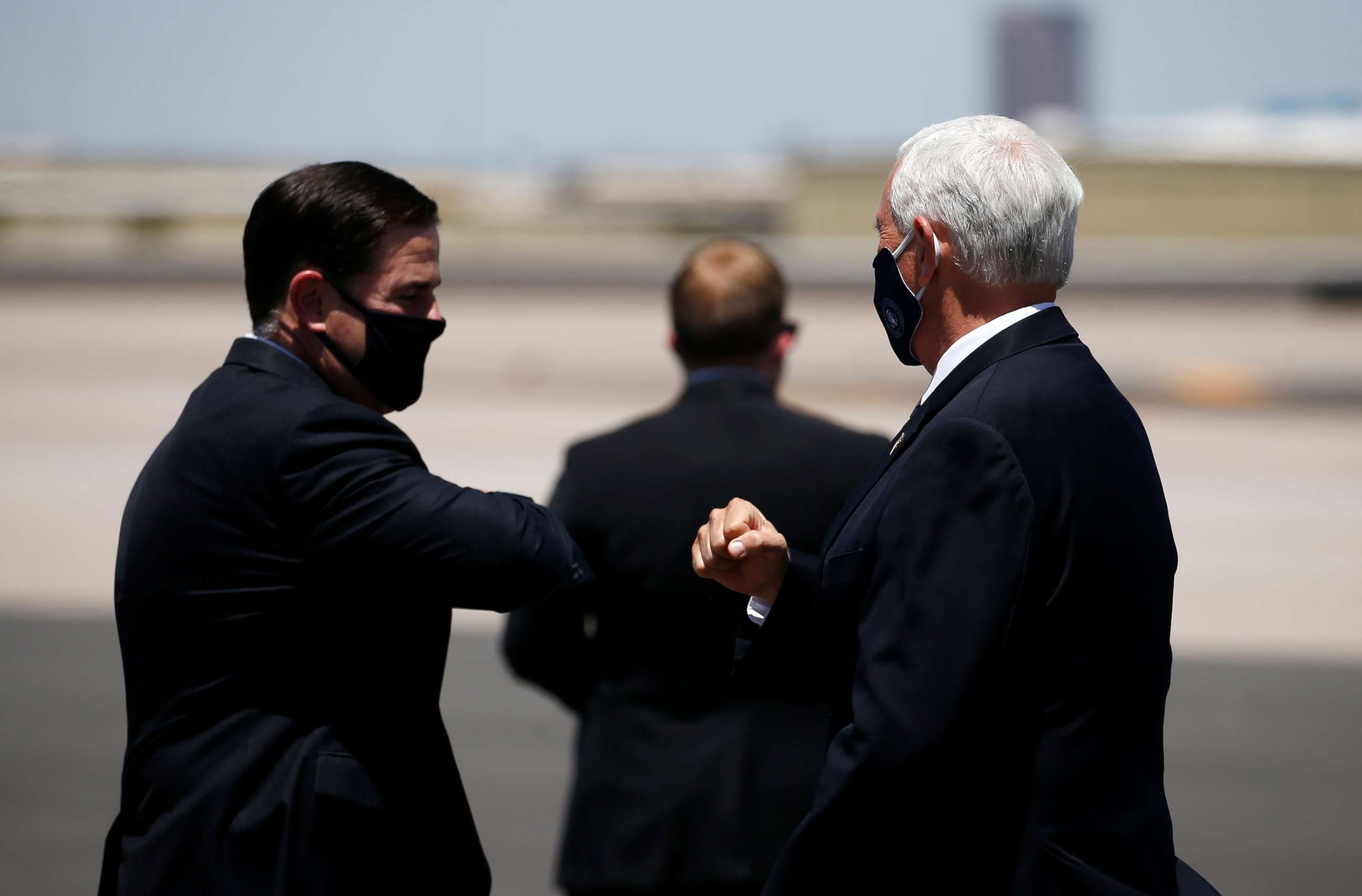
Pence was initially traveling to Arizona this week for a campaign trip but after it was cancelled out of COVID-19 concerns, his office announced new plans to visit in a different capacity and meet with Republican Gov. Doug Ducey, who halted the state's reopening efforts Monday as new cases there skyrocket.
Arizona has seen its cases go from 13,000 on May 15, when the state's say-at-home order expired, to 79,000 on Wednesday. Hours before Pence touched down, the Arizona Health Department reported another day of records at 4,878 new coronavirus cases and 88 deaths.
President Trump has visited the battleground state twice since the pandemic hit: In May, when he spoke at a mask factory but refused to wear one publicly citing the press, and just last week, when he spoke at a "Students for Trump" rally with roughly 3,000 attendees in an indoor mega-church.
Pence, head of the coronavirus task force, who, like most in the Trump administration, has provided a rosy outlook of the government's response for months, is touring hotspot states throughout the week. He visited Texas on Sunday, where he ramped up his rhetoric around wearing a mask, and has plans to visit Florida tomorrow -- states with cause for concern, according to Dr. Anthony Fauci.
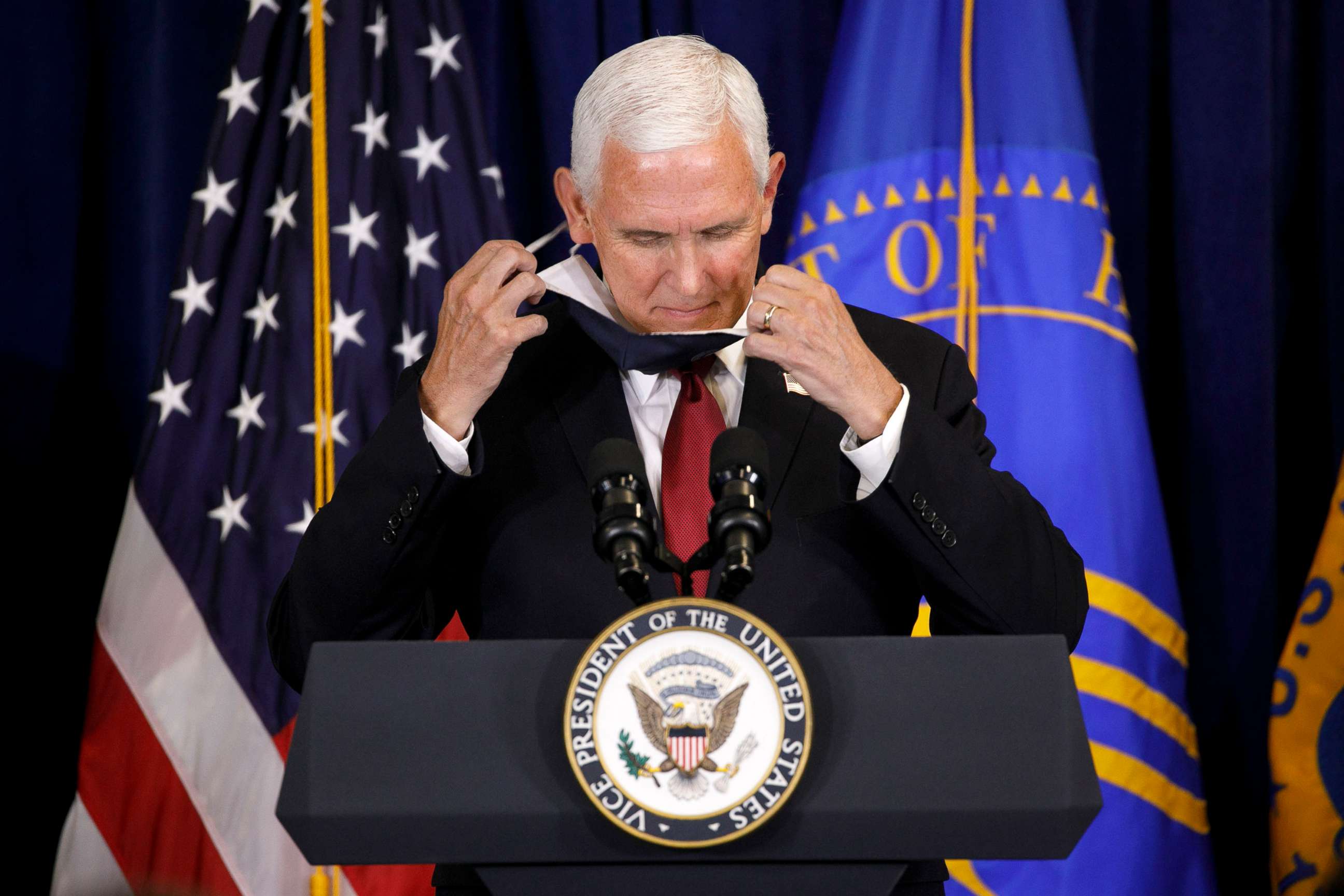
"Right now, the next couple of weeks are going to be critical in our ability to address those surgings that we are seeing in Florida, in Texas, in Arizona and other states," Fauci told lawmakers Tuesday, adding, "They are not the only ones that are having a difficulty."
As federal and state leadership navigate how to heed Fauci's advice and tackle the pandemic, some politicians once lukewarm on masks, facing bipartisan pressure, have started promoting them.
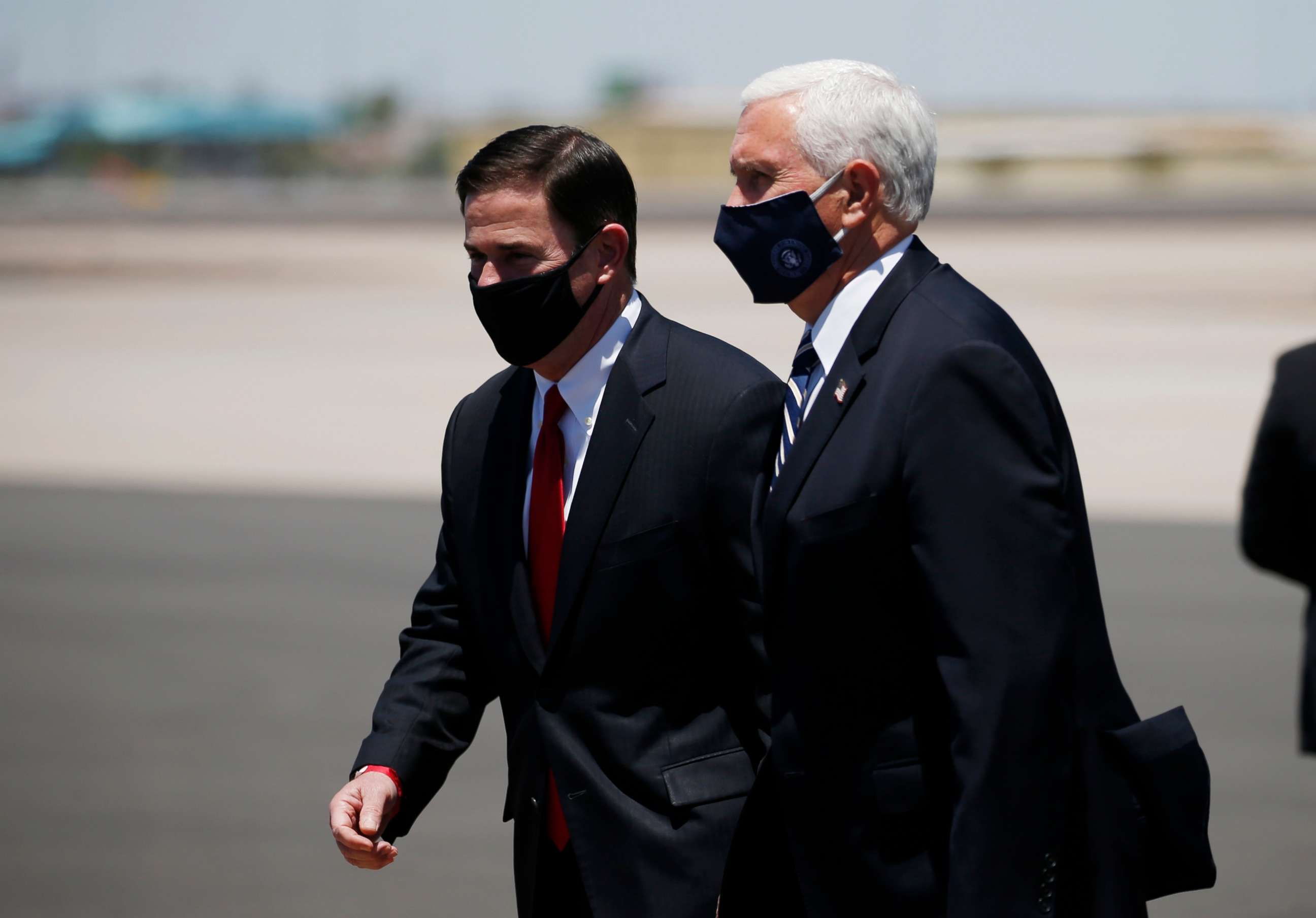
Ducey only two weeks ago allowed cities and counties to design their own mask mandates, following a public pressure campaign from mayors and other local officials across the state. While the city of Phoenix and others were quick to enact the requirement, Ducey has not made a statewide mandate, previously saying that some people can't wear masks "for whatever reason, shortness of breath or they are asthmatic."
In recent days, both Pence and Ducey have donned masks themselves and urged other Americans to wear them.
"Arm yourself with a mask," Ducey said Monday after issuing an executive order to, again, "pause operations" in bars, gyms, theaters, water parks and other venues. "It's your best defense against this virus."
Despite his latest comments President Trump has not portrayed the same message in his actions, and he's facing criticism for failing to meet the moment.
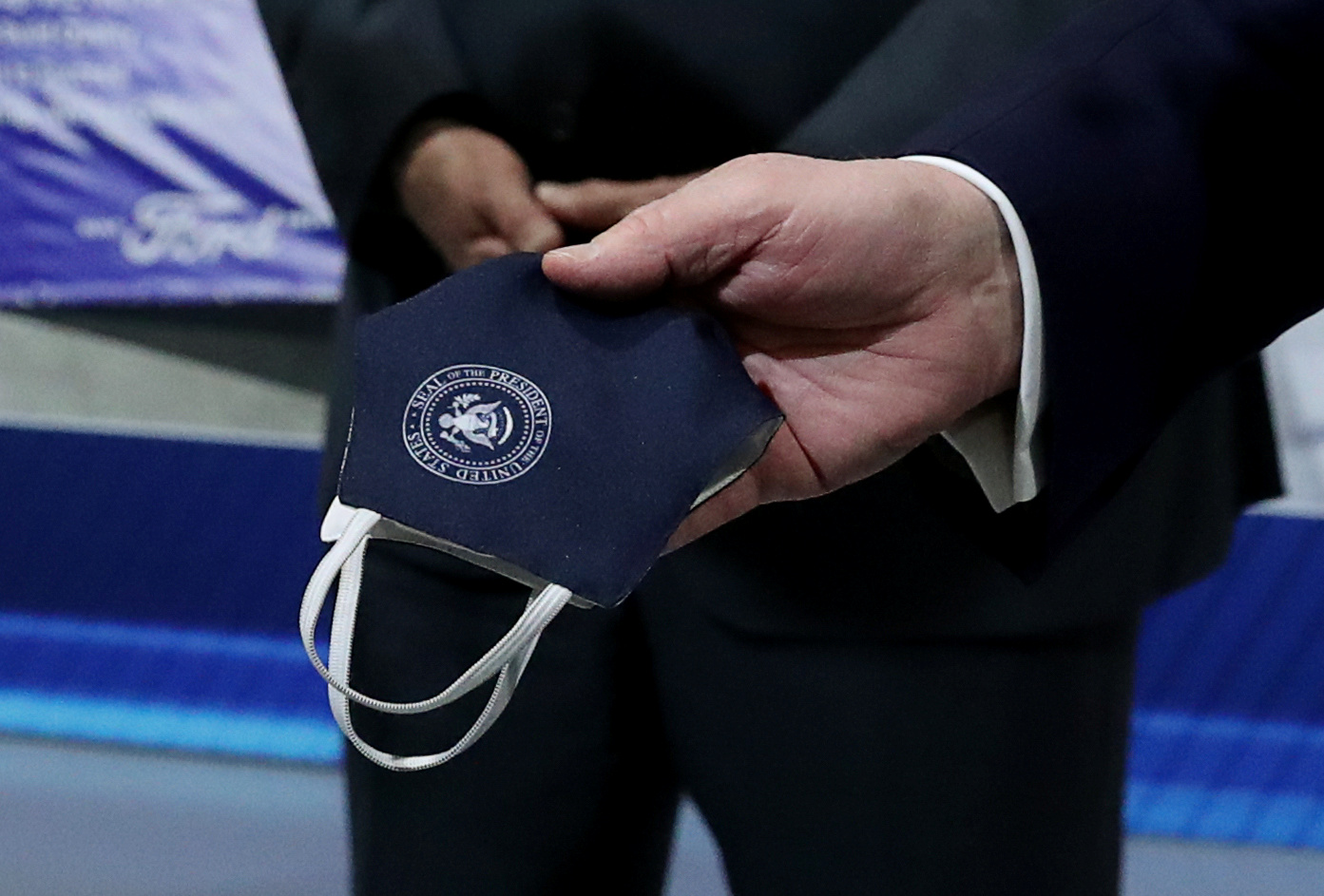
"There are millions of Americans who listen to the president and will do what they think he wants them to do, so he would do a great service to the nation if he would come out with strong and clear message for people to wear a mask -- but also set an example by wearing one himself," said John Cohen, a former acting Undersecretary at Department of Homeland Security, now an ABC News Contributor.
Cohen also noted several of the hot spots states Pence is visiting may have prematurely eased restrictions partly due to the mixed messages coming out of the administration.
"The inconsistent message on masks, coupled with him strongly urging states to relax social distancing restrictions has resulted in an inconsistent national policy and very well may have contributed to the increase in confirmed cases we are experiencing across the country," he said.
Most states, including Arizona, when reopening did not adhere to the White House recommendations of a phased approach. Case counts and positive test results weren't on a downward trend in May, and now those are rising exponentially in nearly half of the U.S.
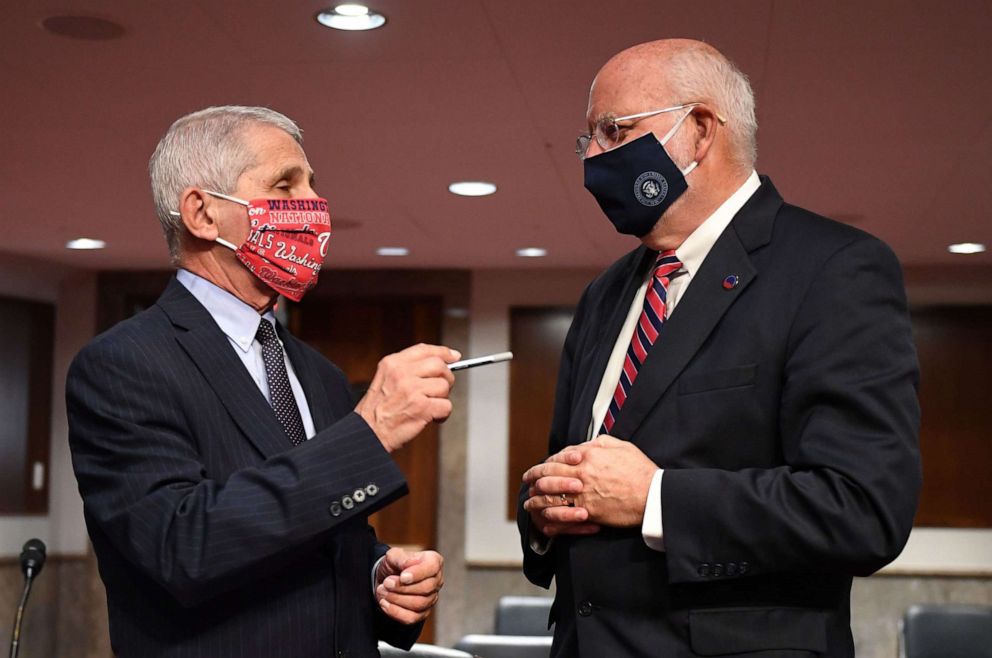
Congressional Republicans as senior as Senate Majority Leader Mitch McConnell and House Minority Leader Kevin McCarthy, who supported reopening the country are now calling on Americans to wear masks, saying there shouldn't be a stigma around wearing a mask and noting it may help the economy recover sooner.
Even a conservative host on Fox News said the president would "set a good example" if he wore a mask and suggested the Republican National Committee could market "MAGA" as "Masks Are Great Again."
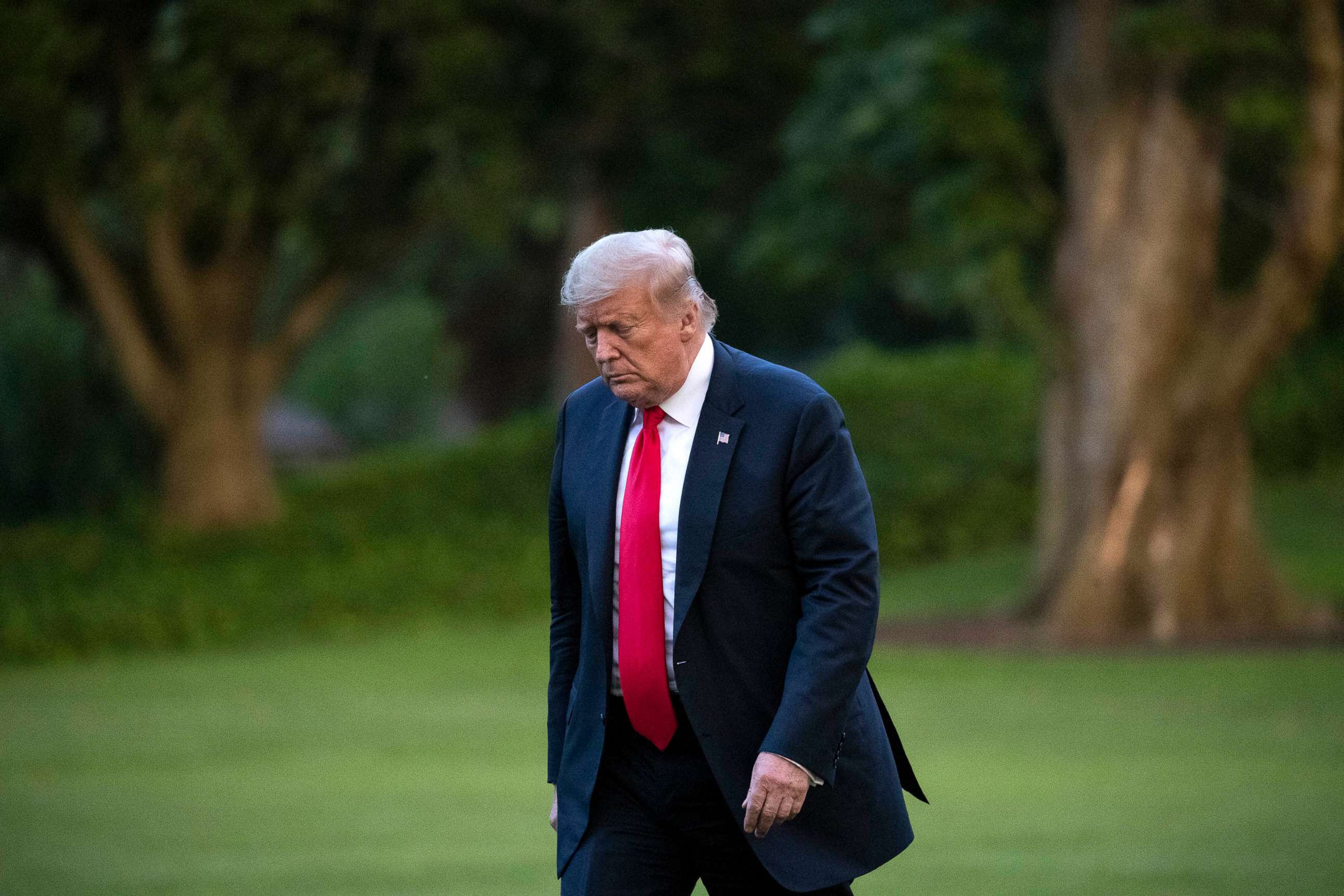
On Friday, President Trump visits South Dakota for an event at Mount Rushmore, and on Saturday he celebrates in Washington, D.C., with his second annual "Salute to America" event.
Republican Gov. Kristi Noem of South Dakota told Fox News Monday night "we won't be social distancing" at the Mount Rushmore event, adding the state would provide masks to those attending the Friday evening event, it would not require people to wear them.
Cohen called the act of not even trying while the nation is dealing with a public health crisis "simply dangerous."
"Until there's a vaccine and to others therapeutic, the only way to slow the spread and protect vulnerable populations and prevent the healthcare, or local healthcare systems from becoming overwhelmed is by washing your hands, socially distancing and wearing a mask," Cohen, who has served in the Clinton, Bush and Obama administrations, added.
"It's the responsibility for all elected officials to clearly and forcefully convey that to the public," he said.
ABC News' Jordyn Phelps, Ben Gittleson and Chris Donovan contributed to this report.






